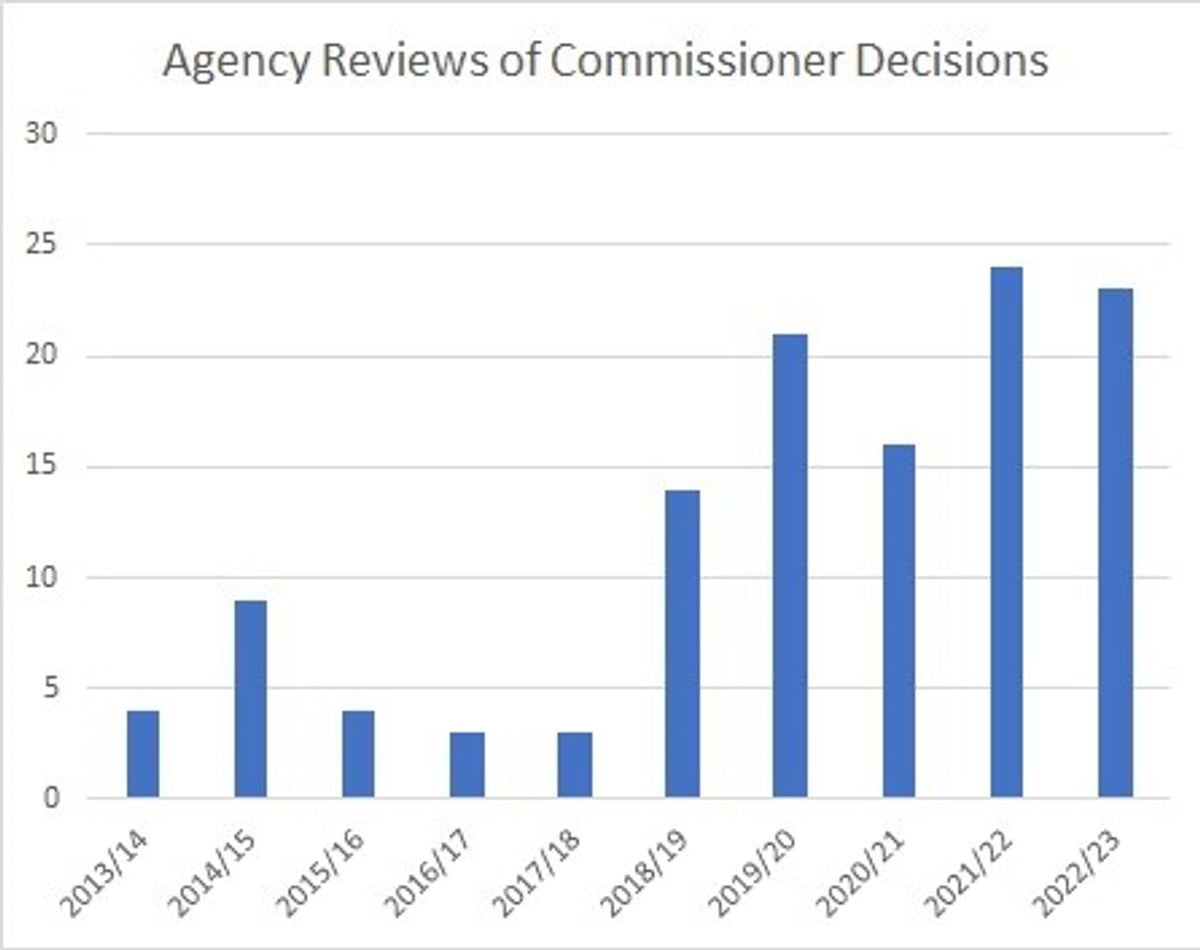From the Executive Director
Agency reluctance to appeal OVIC decisions unjustified

From the Executive Director
Agency reluctance to appeal OVIC decisions unjustified
Since a Commissioner review model was introduced into the Victorian Freedom of Information Act 1982 (“FOI Act”), there was an initial reluctance for agencies to seek review of Commissioner decisions from the Victorian Civil and Administrative Tribunal (“VCAT”).
However, in recent years that trend has shifted significantly. Anecdotally, based on our experience in acting only for government agencies, this has been due to a number of different factors. They include agencies having a greater understanding of their chances of a successful VCAT review, and as a result of growing concern and frustration as to some decisions from the Office of the Victorian Information Commissioner.
In the 5 years from 2013/14 to 2017/18, Commissioner annual reports reveal that at least 23 Commissioner decisions were the subject of review applications to VCAT by agencies. This is at an average of 4.6 per year. In the last 5 years from 2018/19 to 2022/23, 98 OVIC decisions were the subject of VCAT review applications by agencies at an average of 19.6 per year.


When agencies are considering whether to seek review of an OVIC decision by VCAT, there are numerous possible factors at play depending on the particular circumstances. They can include (in no particular order):
To the extent that the last factor is considered on its own, it is important to understand what chances of success may exist. Unfortunately, annual reports of the Information Commissioner and their predecessor, the FOI Commissioner, only reported the number of Commissioner decisions which were the subject of review applications to VCAT by agencies. They did not report on how many of those were successful or not. Note, however, that s 64A of the FOI Act requires the Information Commissioner to report to the Integrity and Oversight Committee of Parliament if there have been 4 or more successful applications by agencies to the VCAT or Supreme Court against decisions of the Commissioner in a 12 month period. We are aware that that has occurred at least once in the last few years. Three of the 4 successful reviews brought by agencies that year were conducted by our firm on behalf of clients and resulted in published VCAT decisions.
What has been reported on in annual reports, however, is the number of agency decisions which were fully affirmed by VCAT, varied by VCAT, or where applicable, fully overturned by VCAT. This is where a review application went all the way to a final decision and was not resolved along the way. The information reported is based on information provided to those Commissioners by agencies.
In the whole period covered by annual reports from 2012/13 to 2022/23, agencies reported that there were a total of 353 VCAT review applications which resulted in a VCAT decision. Of those, 263 resulted in the agency’s decision being totally affirmed. That is an average of 74.5% of cases.
In the last 3 financial years alone, there were 112 decided VCAT cases in which 85 of them resulted in the agency’s decision being totally affirmed (ie 75.9% of decided cases).
If an agency treats anything other than a total overturning of their decision as either a victory (or at least not a loss), the situation is even more compelling. Of the 353 VCAT review applications which resulted in a VCAT decision for the period 2012/13 to 2022/23, a total of 331 cases resulted in the agency decision being totally affirmed or varied (ie 93.77% of cases). However, it must be understood that a variation could still be considered a negative result. It is just not a total overturning of the agency’s decision.
Therefore, based on the above analysis alone, if the chances of success is used as an important factor in determining whether an agency should seek VCAT review, it is possible to reasonably conclude that any reluctance to seek review of an OVIC decision may be unwarranted.
If you want to discuss what this might mean for your agency, please do not hesitate to contact us.
Mick Batskos
Executive Director